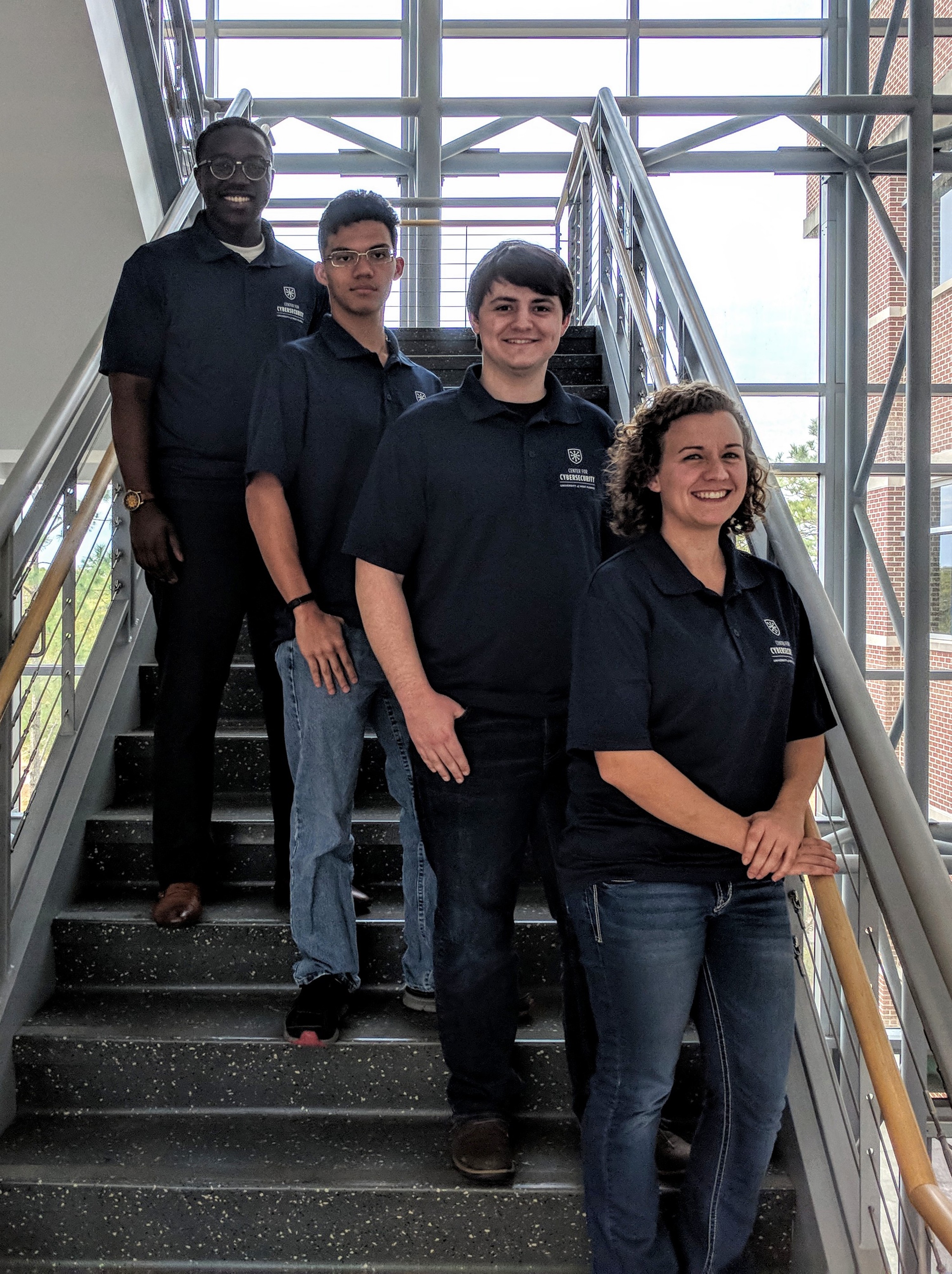Cybersecurity ambassadors share their expertise with K-12 students
January 31, 2018

A startling reality set in for Pace High School teacher Paula Bibza and her students when University of West Florida sophomore Justin Fruitticher clicked the mouse and a picture of an Amazon Echo Dot popped up on the screen next to a list of electronic devices vulnerable to hacking.
Bibza said she bought her son an Echo and set up the device with the same password she uses on other accounts. Fruitticher warned her the possibility exists for someone to steal that password, prompting her to say, “Now I know. I’m going to change every password.”
Fruitticher cited computers, social media, banking accounts, smart cameras and Google Cast as other commonly used devices susceptible to hacking.
“I enjoy seeing everyone’s faces whenever you talk about their vulnerabilities with every device,” said Fruitticher, who spoke to the Pace High School students on Jan. 23. “Not every device is as secure as a majority of people think. It’s all about figuring out a way to mitigate the risks and be able to accept the risks on some devices that you put in your house.”
Fruitticher serves as an ambassador for the UWF Center for Cybersecurity. Seniors Ashley Phillips and Carson Wilber, junior Basil Kuloba and Fruitticher share their expertise with K-12 students in Escambia, Okaloosa and Santa Rosa County school districts. Their mission is to generate grade-school interest in the growing profession and build a cyber-secure community in the process.
“I want to help educate the public on how to remain safe in our technologically advanced world,” Kuloba said. “As our world becomes more connected, it’s important that those of us who know technology do our best to spread basic cybersecurity education to others.”
The ambassadors program is the latest effort by the Center to integrate multidisciplinary education, research and community partnerships to fill the growing demand for cybersecurity professionals regionally, nationally and globally.
Cyberseek.org reports the number of cybersecurity job openings in Northwest Florida alone exceeds 1,000 and in the state of Florida that total is nearly 13,000. Studies indicate there will be two million cybersecurity job openings globally by 2020.
“Living a secure lifestyle is everybody's business and pursuing the industry is both crucial and profitable as technology moves forward,” Wilber said. “Catching the next big security analyst and red-hat hacker before they choose the course of their education and career will prepare the workforce ahead of time.”
Fruitticher told Pace High students that the starting salary for an employee with a degree and the right certifications ranges from $60-90,000.
“Right out of college?” Bibza said in an astonished tone. She then encouraged her students to research educational and career opportunities in cybersecurity.
In December, Phillips shared her cybersecurity expertise with a younger audience when she spoke to fourth-grade students at Berryhill Elementary School in Milton. She introduced the concept of cryptography and the students learned about Caesar cipher, pigpen cipher and a rail fence cipher.
The complex questions asked by the fourth-grade students impressed Phillips. She said they asked about job opportunities, which companies hire cybersecurity professionals and how to develop their own codes.
Phillips said one of her goals as a UWF Center for Cybersecurity ambassador is to eliminate the stigma that a cybersecurity career is only an option for “nerds.” She said anyone is capable of success in the cybersecurity profession with the right training and education.
“That stigma is hurting the career field,” Phillips said. “I want to inspire people to try cyber. Just try one class, one activity, then form an opinion.”







